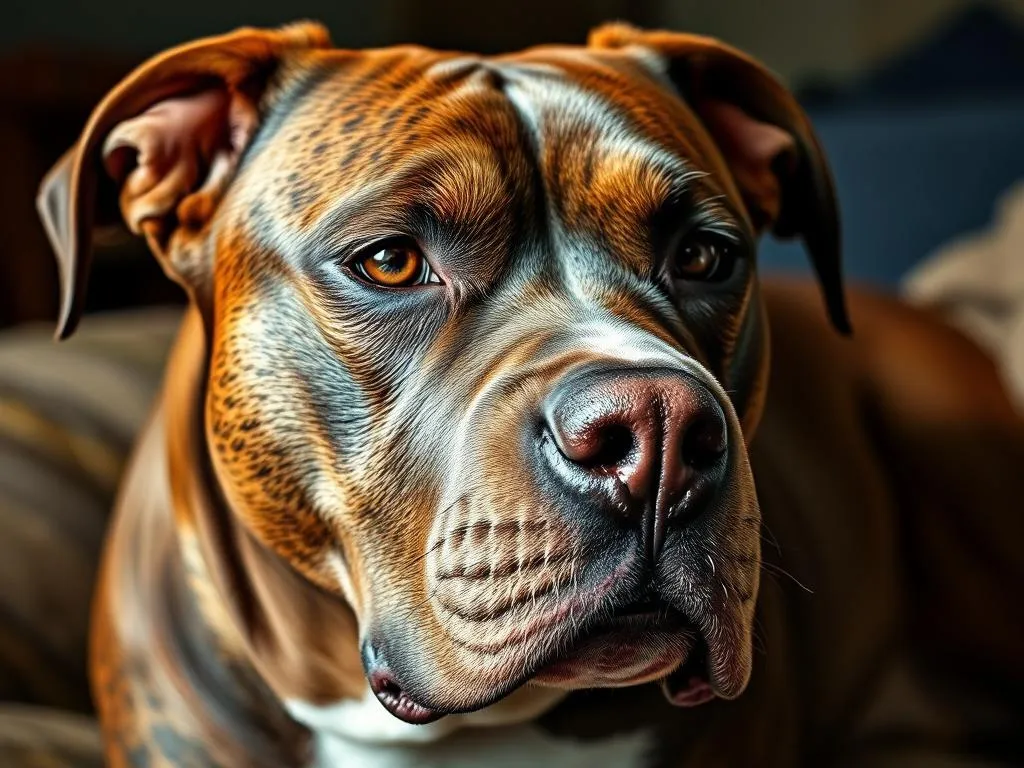
Introduction
Understanding your dog’s health is crucial for their overall well-being, and as a dog owner, it’s essential to be attentive to any unusual behaviors. Pitbulls, known for their strength and loyalty, are a beloved breed for many families. However, like any dog, they can experience health issues that may raise concerns among owners, such as snoring. This article aims to explore the reasons behind this behavior, specifically for pitbulls, and promote proactive health care for our furry friends.
Understanding Snoring in Dogs
What is Snoring?
Snoring in dogs refers to the sound produced during sleep when the flow of air through the nose and throat is partially obstructed. While snoring is often associated with humans, it can occur in dogs too, albeit with some differences. Dogs typically snore due to their unique anatomical structures, including shorter noses and wider throats, which can lead to a higher propensity for airway obstruction during sleep.
Common Causes of Snoring
Several factors contribute to why a dog might snore:
-
Nasal Passages and Airway Anatomy: The shape and size of a dog’s nasal passages and throat play a significant role in snoring. Breeds with shorter muzzles, like pitbulls, may experience more frequent snoring due to their airway structure.
-
Weight and Body Structure: Overweight dogs tend to have excess fat around their necks, which can compress the airway during sleep and lead to snoring. Maintaining a healthy weight is vital for overall health and can reduce snoring.
-
Allergies and Environmental Factors: Dogs can be sensitive to allergens in their environment, such as dust, pollen, or smoke. These allergens can cause inflammation in the nasal passages, making snoring more likely.
Understanding these common causes provides a foundation for addressing the specific concerns of pitbull owners regarding snoring.
Specific Considerations for Pitbulls
Breed Characteristics
Pitbulls possess distinct physical traits that may contribute to their propensity to snore. Their muscular build and relatively short muzzles can affect their breathing patterns, particularly during sleep. Additionally, certain genetic predispositions may make them more susceptible to respiratory issues, which can manifest as snoring.
Age and Snoring
As pitbulls age, their bodies undergo various changes that can influence their snoring patterns. Older pitbulls may experience increased snoring due to weakened muscles in the throat and changes in their overall body composition. Monitoring your pitbull’s snoring habits as they age is crucial, as changes can indicate underlying health concerns.
When Snoring is a Concern
Identifying Abnormal Snoring
While snoring is generally harmless, it’s essential to be able to identify what constitutes concerning snoring. Here are some signs to look for:
-
Loud or Labored Snoring: If your pitbull’s snoring is excessively loud or appears labored, it may indicate an obstruction in the airway.
-
Sudden Changes: If your pitbull suddenly develops a snoring problem after previously sleeping quietly, it could be a sign of a health issue that needs attention.
Associated Health Issues
Snoring can be more than just a nuisance; it can be linked to potential health problems. For instance, sleep apnea is a condition that can affect dogs, leading to interruptions in their breathing during sleep. Other symptoms to watch for alongside snoring include:
- Excessive daytime sleepiness
- Difficulty breathing while awake
- Coughing or gagging during sleep
If you observe these symptoms, it may be time to consult a veterinarian for a thorough evaluation.
Solutions and Remedies for Snoring
Home Remedies
Managing snoring in your pitbull can often be done at home. Here are some practical tips:
-
Weight Management: Ensure your pitbull maintains a healthy weight through a balanced diet and regular exercise. Weight loss can significantly reduce snoring.
-
Sleeping Position: Altering your pitbull’s sleeping position may help alleviate snoring. Encourage them to sleep on their side rather than their back, which can help keep the airway open.
-
Humidifiers: Using a humidifier in your home can keep the air moist, which may help alleviate snoring caused by dry air and allergies.
Veterinary Interventions
If home remedies do not alleviate the snoring, it may be time to consult a veterinarian. They can conduct diagnostic tests to determine the underlying cause of the snoring. Possible interventions may include:
-
X-rays: To assess the structural integrity of the airway.
-
Sleep Studies: These can help identify issues like sleep apnea.
-
Treatments: Depending on the findings, treatment options may include surgery to correct structural problems or medication to manage allergies or inflammation.
Preventative Care for Pitbulls
Regular Health Check-Ups
Routine veterinary visits are essential for maintaining your pitbull’s health. Regular check-ups allow for early detection of any potential health issues, including those that may cause snoring. Keep up with vaccinations and ensure your pitbull receives dental care, as oral health can also impact overall well-being.
Lifestyle Adjustments
Making lifestyle adjustments can significantly improve your pitbull’s quality of life. Consider the following recommendations:
-
Diet: Feed your pitbull a balanced diet appropriate for their age, weight, and activity level. Consult with your veterinarian about the best dietary choices.
-
Exercise: Regular exercise is crucial for maintaining a healthy weight and overall health. Ensure your pitbull gets plenty of physical activity to prevent obesity.
-
Environmental Modifications: Reduce allergens in your home by regularly cleaning and vacuuming, using air purifiers, and avoiding smoke or strong scents that may irritate your pitbull’s respiratory system.
Conclusion
In summary, understanding why your pitbull is snoring can help you take appropriate steps to ensure their health and comfort. While snoring may be a common occurrence, being vigilant about any changes in your pitbull’s snoring patterns is crucial. By maintaining regular veterinary check-ups, ensuring a healthy lifestyle, and being aware of when snoring may indicate a health issue, you can foster a proactive approach to your pitbull’s health care. By doing so, you’ll not only enhance their quality of life but also strengthen the bond you share with your beloved pet.









